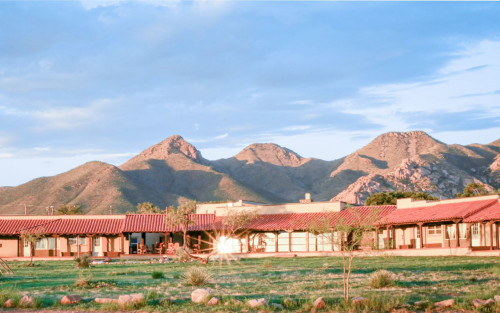
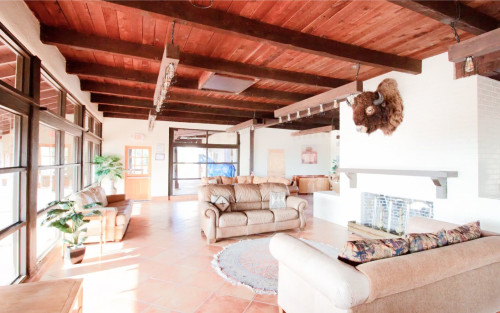
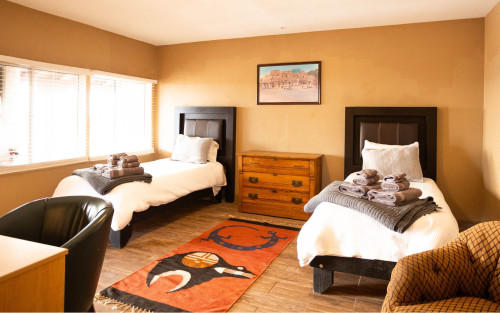
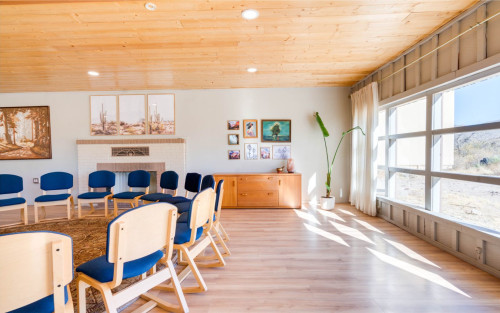





Seven Arrows Recovery
Verified Center
This provider's information has been quality-checked by Recovery.com's Research Team for accuracy and completeness, including center verification through appropriate third-party organizations.
Treatment Focus
This center treats substance use disorders and co-occurring mental health conditions. Your treatment plan addresses each condition at once with personalized, compassionate care for comprehensive healing.
Primary Level of Care
Offering intensive care with 24/7 monitoring, residential treatment is typically 30 days and can cover multiple levels of care. Length can range from 14 to 90 days typically.
Treatment Focus
This center treats substance use disorders and co-occurring mental health conditions. Your treatment plan addresses each condition at once with personalized, compassionate care for comprehensive healing.
Primary Level of Care
Offering intensive care with 24/7 monitoring, residential treatment is typically 30 days and can cover multiple levels of care. Length can range from 14 to 90 days typically.
Provider's Policy
We work with most major insurance companies and we're are here to help you with this process. Seven Arrows Recovery does not accept state insurance, Medicaid or Medicare. If you have any questions about whether or not your insurance would cover your treatment, please call us for help determining your coverage options.
Seven Arrows Recovery
Seven Arrows Recovery
About Seven Arrows Recovery
Seven Arrows Recovery treats addiction and co-occurring mental health conditions with a unique holistic approach. They use a personalized blend of evidence-based, holistic, and spiritual therapies to help clients heal long-term. Seven Arrows Recovery provides trauma-informed, strengths-based care focusing on individual needs, goals, and growth. They also offer airport pick-ups and drop-offs for easy access.
Evidence-Based Dual-Diagnosis Recovery
Seven Arrows Recovery treats primary addiction and co-occurring mental health conditions, including anxiety, depression, bipolar disorder, post-traumatic stress disorder (PTSD), and trauma. They use various evidence-based therapies to help clients simultaneously heal from each condition. Their therapies include cognitive behavioral therapy (CBT), psychodrama, art therapy, eye movement desensitization and reprocessing (EMDR), narrative exposure therapy, equine-assisted learning, motivational interviewing techniques, and more.
Personalized And Comprehensive
Clients at Seven Arrows Recovery have an assigned therapist throughout their stay. They meet for individual sessions 1-2 times a week. Clients receive 4 daily hours of group therapy and 2 hours of adjunctive therapies, which includes equine-assisted learning (clients also have one of 30 horses assigned as their own during their stay). Their other holistic therapies include trauma-informed yoga, gardening, fitness, stargazing, outings, and sweat lodge sessions. Seven Arrows Recovery incorporates Indigenous healing, culture, and traditions into their programs too.
Supportive Care for Clients And Family
Seven Arrows Recovery welcomes family visits on Sundays from 2-5pm. Clients can also access their phones for a half hour each night and make business calls if need be. After completing residential treatment, Seven Arrows Recovery can connect clients to further care in an outpatient setting. If needed, they can also help clients set up detox services prior to admission. Clients meet in weekly alumni meetings and on-site 12-Step meetings, with additional alumni events available throughout the year.
Highlights from the Center
Highlights
These highlights are provided by and paid for by the center.
Holistic Approach
Certified Professionals
Unique Cultural Experiences
100+ Acre Grounds
Center Overview
Treatment Focus
This center treats substance use disorders and co-occurring mental health conditions. Your treatment plan addresses each condition at once with personalized, compassionate care for comprehensive healing.
Joint Commission Accredited
The Joint Commission accreditation is a voluntary, objective process that evaluates and accredits healthcare organizations (like treatment centers) based on performance standards designed to improve quality and safety for patients. To be accredited means the treatment center has been found to meet the Commission's standards for quality and safety in patient care.

Seven Arrows Recovery
Insurance Accepted
Cash Pay Rates
Estimated Cash Pay Rate
Center pricing can vary based on program and length of stay. Contact the center for more information. Recovery.com strives for price transparency so you can make an informed decision.
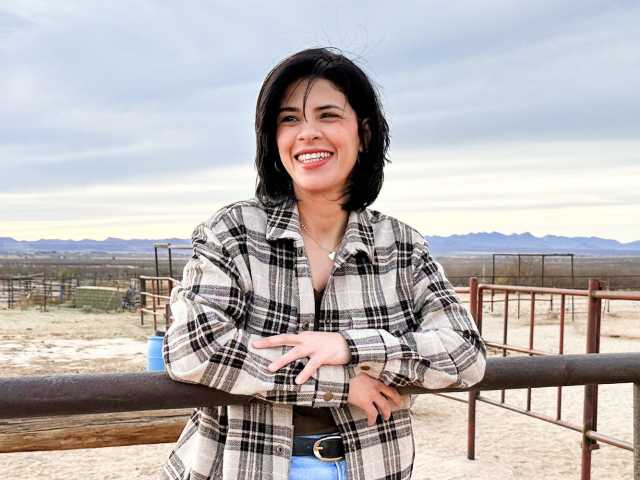



Recovery.com Verified Listing
Recovery.com verified that the name, location, contact information and license to operate for this treatment provider are valid and up-to-date.

Joint Commission Accredited

Licensed by Arizona DHS
Recovery.com is an independent, third-party mental health resource. Verification does not imply endorsement and does not guarantee the quality of treatment services.
Meet Your Care Team

Laura Fedele
Chief Executive Officer

Lindsay Rothschild
Clinical Director
LCSW, CCTP, SAP

Dr.Tracey Oppenheim
Medical Director
MD

Brian Two Moons
Experiential Program Director & Property Operations Director

Laura Bailey
Clinical Supervisor
LAC, M.A
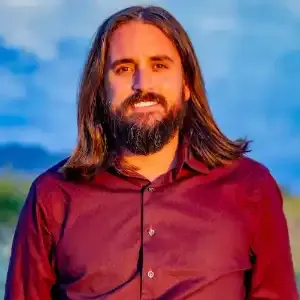
Brad Loring
Admissions

Ginger Barker
Therapist
LAC, CCTS
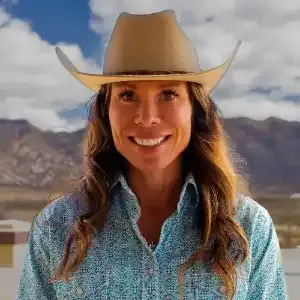
Melissa Simard
Equine Assisted Learning Specialist
BAPSY
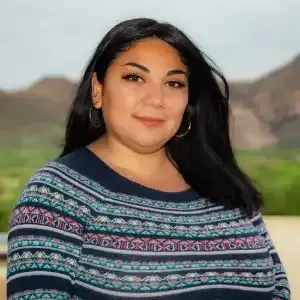
Placida Valdez
Lead Behavioral Health Technician
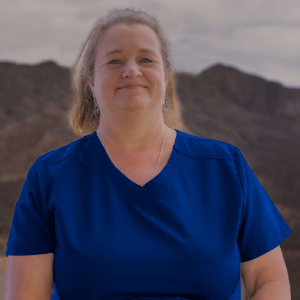
Sarah Owen
Registered Nurse
RN
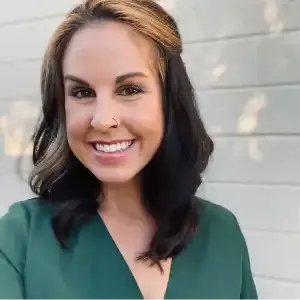
Winter Groeschl
Licensed Professional Counselor
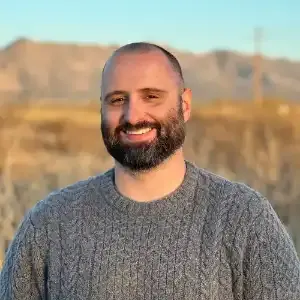
Kody Smith
Director of Business Development
MBA, BS
Your Care Options
Specializations
Alcohol
Using alcohol as a coping mechanism, or drinking excessively throughout the week, signals an alcohol use disorder.
Co-Occurring Disorders
A person with multiple mental health diagnoses, such as addiction and depression, has co-occurring disorders also called dual diagnosis.
Drug Addiction
Drug addiction is the excessive and repetitive use of substances, despite harmful consequences to a person's life, health, and relationships.
Equine Therapy
Guided interactions with trained horses, their handler, and a therapist can help patients improve their self-esteem, trust, empathy, and social skills.
Heroin
Heroin is a highly addictive and illegal opioid. It can cause insomnia, collapsed veins, heart issues, and additional mental health issues.
Holistic
A non-medicinal, wellness-focused approach that aims to align the mind, body, and spirit for deep and lasting healing.
Opioids
Opioids produce pain-relief and euphoria, which can lead to addiction. This class of drugs includes prescribed medication and the illegal drug heroin.
Trauma
Some traumatic events are so disturbing that they cause long-term mental health problems. Those ongoing issues can also be referred to as "trauma."
Who We Treat
Young Adults
Emerging adults ages 18-25 receive treatment catered to the unique challenges of early adulthood, like college, risky behaviors, and vocational struggles.
LGBTQ+
Addiction and mental illnesses in the LGBTQ+ community must be treated with an affirming, safe, and relevant approach, which many centers provide.
Men and Women
Men and women attend treatment for addiction in a co-ed setting, going to therapy groups together to share experiences, struggles, and successes.
Midlife Adults
For adults ages 40+, treatment shifts to focus on the unique challenges, blocks, and risk factors of their age group, and unites peers in a similar community.
Treatment Services
Residential
In a residential rehab program, patients live onsite, with access to daily treatment and 24-hour care. An average stay is 30-90 days.
Approaches
Spiritual Emphasis
Spirituality connects patients to a higher power and helps strengthen their recovery, hope, and compliance with other treatment modalities.
Evidence-Based
A combination of scientifically rooted therapies and treatments make up evidence-based care, defined by their measured and proven results.
Holistic
A non-medicinal, wellness-focused approach that aims to align the mind, body, and spirit for deep and lasting healing.
Individual Treatment
Individual care meets the needs of each patient, using personalized treatment to provide them the most relevant care and greatest chance of success.
Twelve Step
Incorporating spirituality, community, and responsibility, 12-Step philosophies prioritize the guidance of a Higher Power and a continuation of 12-Step practices.
Therapies
1-on-1 Counseling
Patient and therapist meet 1-on-1 to work through difficult emotions and behavioral challenges in a personal, private setting.
Trauma-Specific Therapy
This form of talk therapy addresses any childhood trauma at the root of a patient's current diagnosis.
Adventure Therapy
This experiential approach uses the physical and emotional challenges of outdoor activities as tools for personal growth.
Art Therapy
Visual art invites patients to examine the emotions within their work, focusing on the process of creativity and its gentle therapeutic power.
Equine Therapy
Guided interactions with trained horses, their handler, and a therapist can help patients improve their self-esteem, trust, empathy, and social skills.
Eye Movement Therapy (EMDR)
Lateral, guided eye movements help reduce the emotional reactions of retelling and reprocessing trauma, allowing intense feelings to dissipate.
Family Therapy
Family therapy addresses group dynamics within a family system, with a focus on improving communication and interrupting unhealthy relationship patterns.
Horticultural Therapy
Gardening can be both meditative and inspiring. This therapy encourages social, emotional, and physical recovery.
Conditions We Treat
Grief and Loss
Grief is a natural reaction to loss, but severe grief can interfere with your ability to function. You can get treatment for this condition.
ADHD, ADD
ADHD is a common mental health condition caused by dopamine imbalance. Common symptoms include inattention, hyperactivitiy, and impulsivity.
Anxiety
Anxiety is a common mental health condition that can include excessive worry, panic attacks, physical tension, and increased blood pressure.
Bipolar
This mental health condition is characterized by extreme mood swings between depression, mania, and remission.
Codependency
Codependency is a pattern of emotional dependence and controlling behavior. It's most common among people with addicted loved ones.
Depression
Symptoms of depression may include fatigue, a sense of numbness, and loss of interest in activities. This condition can range from mild to severe.
Post Traumatic Stress Disorder
PTSD is a long-term mental health issue caused by a disturbing event or events. Symptoms include anxiety, dissociation, flashbacks, and intrusive thoughts.
Stress
Stress is a natural reaction to challenges, and it can even help you adapt. However, chronic stress can cause physical and mental health issues.
Trauma
Some traumatic events are so disturbing that they cause long-term mental health problems. Those ongoing issues can also be referred to as "trauma."
Substances We Treat
Alcohol
Using alcohol as a coping mechanism, or drinking excessively throughout the week, signals an alcohol use disorder.
Benzodiazepines
Benzodiazepines are prescribed to treat anxiety and sleep issues. They are highly habit forming, and their abuse can cause mood changes and poor judgement.
Chronic Relapse
Consistent relapse occurs repeatedly, after partial recovery from addiction. This condition requires long-term treatment.
Co-Occurring Disorders
A person with multiple mental health diagnoses, such as addiction and depression, has co-occurring disorders also called dual diagnosis.
Drug Addiction
Drug addiction is the excessive and repetitive use of substances, despite harmful consequences to a person's life, health, and relationships.
Heroin
Heroin is a highly addictive and illegal opioid. It can cause insomnia, collapsed veins, heart issues, and additional mental health issues.
Methamphetamine
Methamphetamine, or meth, increases energy, agitation, and paranoia. Long-term use can result in severe physical and mental health issues.
Opioids
Opioids produce pain-relief and euphoria, which can lead to addiction. This class of drugs includes prescribed medication and the illegal drug heroin.
Languages
Aftercare
Care Designed for Your Needs
Personal Amenities
Amenities
Special Considerations
Center Pets
Addiction and mental health facilities with pets allow patients to interact with friendly dogs, cats, horses, and in some cases, even dolphins.
Activities
Yoga
Yoga is both a physical and spiritual practice. It includes a flow of movement, breathing techniques, and meditation.
Learn More About the Center
Admissions Process
See an overview of the admissions process at Seven Arrows Recovery.
FAQs for Seven Arrows Recovery
Read answers to common questions about accommodations, payment, and the therapies at Seven Arrows Recovery.
Why Seven Arrows Recovery?
Learn more about what sets Seven Arrows Recovery apart from the rest.
Helping a Loved One
Seven Arrows Recovery describes how to help a loved one with an alcohol addiction, and why it’s addictive in the first place.
What people are saying
Treatment
4.9
Accommodations
4.7
Food & Nutrition
4.7
Value
4.9
Pros
- Beautiful Location (12)
- Friendly & Competent Staff (12)
- Addressed Trauma (10)
- Fun Activities (10)
Cons
- Poor Internet Connection (3)
- Poor Cell Service (3)
- Limited Time to Work (2)
- Not Enough Time With Therapist (2)
Will
Treatment in 2023 • (90 days) • Reviewed 08/03/23
Former Client
•Certified Public Accountant
•Tucson, AZ
MP
Treatment in 2023 • (30 days) • Reviewed 07/19/23
Former Client
•Non-profit Conservation Field
•SW United States
Steve
Treatment in 2022 • (90 days) • Reviewed 06/28/23
Former Client
•Technical Industry Entrepreneur
•Northwest US
L.L.
Treatment in 2023 • (30 days) • Reviewed 06/26/23
Former Client
•Arizona
Beth B
Treatment in 2023 • (30 days) • Reviewed 06/26/23
Loved One of a Former Client
•Gilbert, AZ





